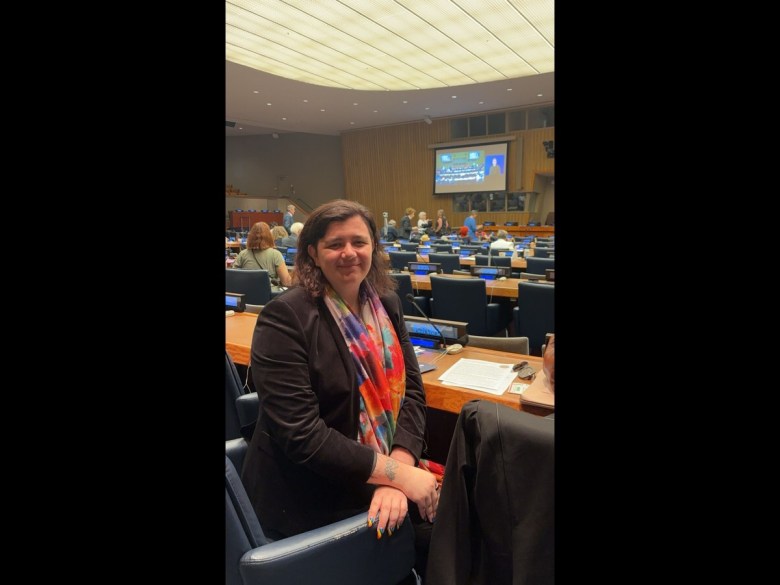Disability advocate and VALID Board Member William Ward-Boas has returned from the recent United Nations Conference of State Parties to the Convention on the Rights of Persons with Disabilities (COSP17), and he’s ready to get back to work.
Ward-Boas attended COSP17 on behalf of the Australian Federation of Disability Organisations (AFDO), and his trip was supported by connections and friends who donated to the cost of the trip.
Freshly back from the UN, Ward-Boas expressed his heartfelt gratitude to those who supported him to get this amazing opportunity to listen and learn from advocates from around the world.
He said the advocates who attended from around the globe brought unique thoughts and experiences he hopes to apply to the rapidly changing Victorian and Australian disability sectors.
Discussions at COSP17 centred on an overall theme of rethinking inclusion for people with disability. Sub-themes included digital accessibility, disability during emergencies and humanitarian crises, and employment for people with disability.
“Something I was absolutely shocked by was the discussion had on intersectionality and how it’s still a current day issue,” the young advocate said.
“On the topic of marginalisation and intersectionality, women with disability are still one of the biggest affected communities, not just here in Australia but on a global scale. This isn’t just disability discrimination, this falls into gendered, age, ethnic and other intersectionalities. We can do better here – a good start would be to learn from other countries on what works so we can improve outcomes for Australian women.”
He added that this conversation needs to be prioritised and embedded change needs to happen, rather than temporary solutions.
He also enjoyed learning from international delegates about how their countries are tracking in their disability inclusion journeys.
Swedish delegates spoke on the humanitarian crisis and emergency planning sub theme; they said some medical students are being taught to prioritise able-bodied people in emergencies, showing ableism remains an issue. Sweden’s example reflected the need for systemic changes including crisis preparedness in care plans and routines, Ward-Boas explained.
Another highlight for Ward-Boas was the presentations from Moldova and Hungary’s delegates, who said that there are ways we can help provide more legal representation and expertise for individuals with disabilities seeking legal action: funding mechanisms can be established to support organisations doing this important work, as legal proceedings require significant resources. Law schools can strengthen disability rights curriculum to train more lawyers with expertise in this area of law, and pro bono programs pairing lawyers with advocacy organisations can help expand representation for individuals.
Now back on home soil, he said he is grateful to have had the opportunity to attend COSP17.
“It gave me an opportunity to look at other examples of what advocacy is throughout the world. There were so many incredible advocates globally and just listening to their forms of advocacy, whether it was touching on the subthemes or questioning current structures, was really empowering to listen to,” he said.
“Giving all of these incredible people the opportunity [to advocate] just fuelled my fire and made me excited to want to speak at this kind of event [in future].”
Personal learnings
COSP17 also gave Ward-Boas the change to reflect on intersectionality and how this can impact vulnerable communities of people with disability.
“This is globally, not just Australia. And it’s a bit disappointing to hear… gendered discrimination and gender inequality and human rights are still ‘a thing’ in 2024,” he said.
He said he believes disability rights are human rights – but despite “significant work” human rights for people with disability are still lacking.
“We’re not there yet,” he said.
He’s now looking forward to new possibilities exploring and advocating on national policy around disability rights.
Ward-Boas thanked those who donated towards his trip costs, as well as the mentors, family members and friends who supported him ahead of and during the trip, and AFDO for taking him on as part of their delegation.

